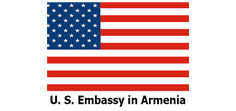With the emergence of the Omicron variant of COVID-19 in November 2021, the pandemic gained new momentum.
To control the progression of the disease, the World Health Organization and national health agencies have begun urging people not only to get fully vaccinated but also to take the third dose, better known as the booster dose.
At the end of last year, the Ministry of Health of Armenia also sanctioned the use of the third dose.
The Fact Investigation Platform studied the reason why it is necessary to get vaccinated with a booster dose and what is the experience of other countries.
When is a person considered fully vaccinated?
To be fully vaccinated, you must receive two doses of the available COVID-19 vaccines. The only exception is Janssen, one dose of which is sufficient to form an immunity against COVID-19. However, this vaccine is not available in Armenia.
At present, two doses are enough to be considered fully vaccinated, but health officials in many countries recommend boosters.
What is a booster dose and how does it work?
Vaccines against COVID-19 are quite effective in preventing severe disease and significantly reducing deaths, but no vaccine provides 100% protection against infection.
In addition, the virus mutates over time, and therefore it is necessary to strengthen the immune system. Especially in areas where COVID-19 is active and vaccination rates are low, the risk of vaccinated people being infected increases. Moreover, over time, the immunity acquired through the COVID-19 vaccine begins to decline, and therefore additional booster injections become necessary.
After the dose is administered, the immune system “thinks” that the virus has re-entered the body and begins to produce antibodies. The number and quality of antibodies increases. Through this process, the immune system learns to recognize the virus better. Antibodies formed through the booster injection are more effective in fighting the variants of the virus.
It is noteworthy that the dose of the third injection may differ from the previous two. For example, the third dose of Moderna forms half of the first dose.
What other diseases require vaccine booster shots?
There are diseases with a long history that require multiple vaccinations. It is necessary to get vaccinated against diphtheria, tetanus, mumps and whooping cough every ten years.
The seasonal flu also requires several vaccinations, as its viruses are constantly changing, and consequently, the flu vaccine is updated each season according to the type of virus circulating during that season.
International experience of booster injections
Many countries have long used the third and fourth additional booster injections to protect against COVID-19.
In January 2022, the Israeli authorities announced that they would vaccinate citizens over 60 for the fourth time. One of the first to be vaccinated for the fourth time was the country’s Minister of Health. Israeli scientists have found that the immune system’s protection is significantly reduced 3 months after taking the third dose of COVID-19 vaccine.
In Russia, booster injections have been allowed since June 2021 for those who have been fully vaccinated for 6 months. At the same time, the Russian Ministry of Health urges to choose only “Sputnik Light” as the third vaccine dose. In November last year, President Vladimir Putin was also vaccinated with a booster dose.
Following the emergence of the new Omicron strain of COVID-19 in Germany, people are urged to get vaccinated with booster doses. As of January, 75 percent of the country’s population was fully vaccinated, and 45 percent had received the booster dose.
In the Netherlands, it has been decided that those entering the country will not be required to self-isolate for two weeks if they have been vaccinated with the booster dose one week before arrival.
In the United States, as of January 2022, a person who has received two doses is considered fully vaccinated, but a third dose is encouraged.
In Georgia, booster doses were approved on October 13, 2021, for people over 50 and people in the risk groups, and since November, people over 18 can be vaccinated.
Booster injections in Armenia
From December 1, 2021, citizens over 18 years of age can get a booster injection against COVID-19 in Armenia 6 months after receiving the second dose.
Armenian Minister of Health Anahit Avanesyan and Minister of Economy Vahan Kerobyan got booster jabs in January.
Loosineh Voskanyan

 FACTOMETER
FACTOMETER









